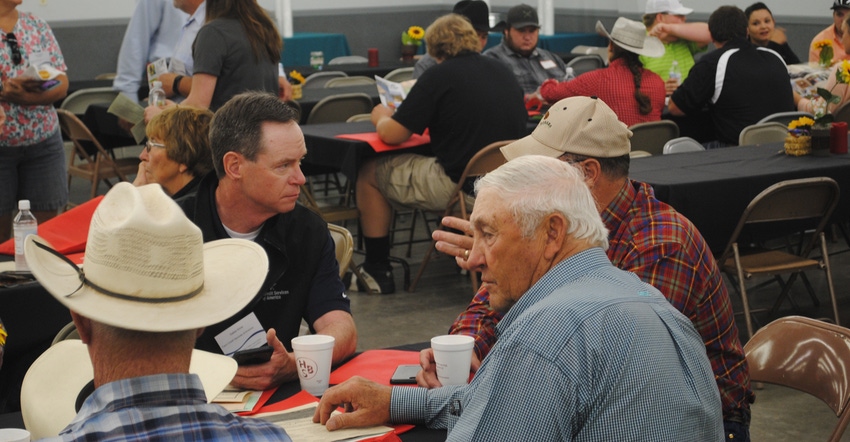
You can’t turn on the TV or radio news or browse social media these days without hearing about how divided our nation is.
We are barraged with opinions from all sides that seem to corroborate the fact that the country is divided on policy and politics. If we are to believe these pundits, we are hopelessly divided with no chance for compromise or reconciliation from either side.
They make it sound so complicated. They make it sound so dire. But I am an optimist. I think there are solutions out there to help us bridge the political chasms and bring people together. And I believe that farmers and ranchers are the ones who have the answers.
I don’t know any discussion that could be more divided and divisive than an argument between farmers about which color tractor is best in the field and on the farm. I haven’t seen any of these so-called discussions come to blows, but farmers are pretty dug in when it comes to our machinery.
The same could be said about farmer arguments about which brand of pickup truck runs best. And let’s not get us started about the best breed of herd bull. These are the divisive arguments of our time, and there seems to be no way to compromise on these difficult subjects.
The only thing that brings these divided farmers together is when we discuss the weather. I’m not talking about long-term climate change, just simple, day-to-day weather. Most producers can agree what kind of weather is good and what kind of weather is bad.
After planting in the spring is done, almost every farmer would agree that a slow, soaking rain is a good thing. At harvest time in the fall, not many farmers would argue that a day of sunshine, low humidity and a light breeze is good for getting the job done.
Farmers all can agree that straight-line winds, tornadoes and twisters, and massive hailstorms are bad. It doesn’t matter what color your tractor is or the brand of your pickup, these storms offer nothing that anyone could call good.
Maybe our legislators and leaders in our state capitals and in Washington, D.C., should take a page from farmer logic to bridge the deep divides of our politics and preferred policy. Maybe every legislative hearing in our nation’s capital should begin with a weather report, and the first question that could be asked of those who are testifying could be about the weather where they are from.
Maybe Congress should not only begin each session with prayer, but also a briefing on the local weather and weather events across the country. That way, our senators and esteemed leaders in Congress would have something to talk about that generally is not divisive, and that could help break the ice.
If they would take the time in the halls of our legislative bodies to simply ask each other about the weather in their home districts and states and about how the crops and livestock are doing, we might be able to bridge a few of the other issues that seem to divide us.
I think they should give it a try. It works for farmers. Why can’t it work when it comes to those we trust in governing?
About the Author(s)
You May Also Like






